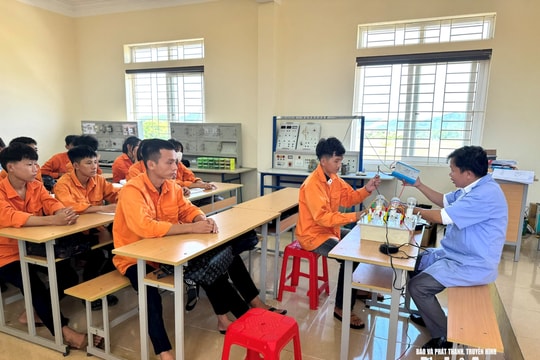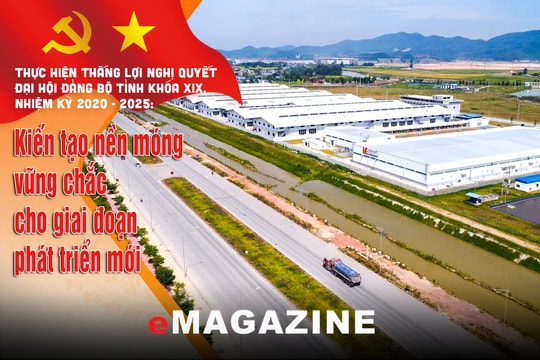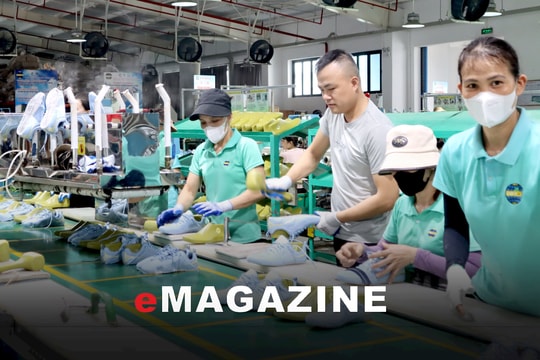Why FDI enterprises "dislike" the quality of Vietnamese labor
69% of foreign direct investment (FDI) enterprises in Vietnam said they are facing difficulties in recruiting skilled technical staff to serve their production and business activities.
This is one of the results given in the framework of the Provincial Competitiveness Index (PCI) 2017 report recently announced by the Vietnam Chamber of Commerce and Industry.
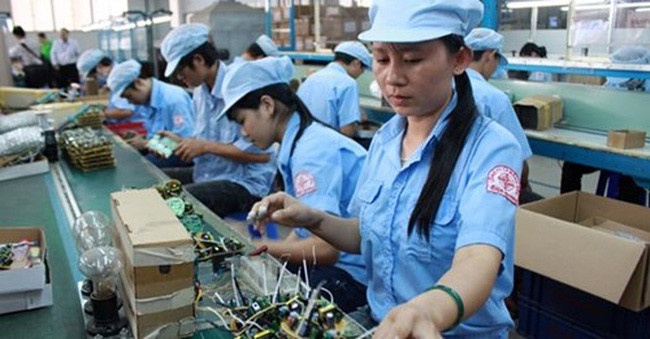 |
Difficulty recruiting high quality personnel
According to FDI enterprises, to maximize the benefits from FDI capital, Vietnam should not only continue to rely on the advantage of cheap labor, but also need to improve labor quality to attract investment in higher value-added industries such as computers, electronics and motor vehicles.
The PCI 2017 report also shows that the quality of Vietnam’s human resources has not made many breakthroughs. This is more clearly shown when FDI enterprises said they encountered many difficulties in recruiting workers for technical and management positions.
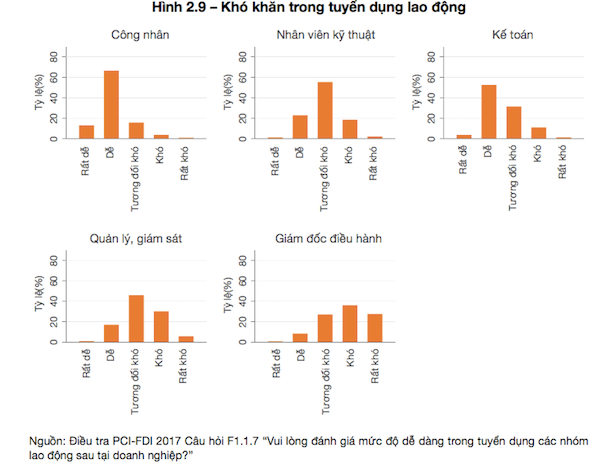 |
| Comparison chart of difficulties in recruiting human resources of FDI enterprises in Vietnam. |
According to a survey by the Japan External Trade Organization (JETRO) in 2015, 80% of responding businesses said they needed to recruit technical staff and 89% said they wanted to recruit technical staff in the future. By 2017, the PCI-FDI survey also showed that skilled engineers were still very scarce, with 55% of businesses saying it was relatively difficult and 19% saying it was difficult to recruit this type of worker.
In addition, FDI enterprises also face difficulties in finding human resources for positions requiring many skills such as management, supervision and executive director/financial director. In particular, for the group of executive director/financial director workers, 36% of surveyed FDI enterprises said it was difficult and 28% said it was very difficult to recruit. Only 31% of FDI enterprises assessed that the quality of Vietnamese labor in the provinces met their needs.
Must spend a lot on training new workers
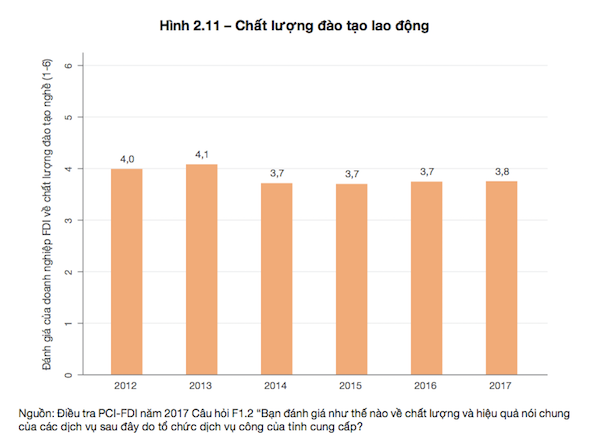 |
| Quality of Vietnamese human resources in the period 2012 - 2017. |
The PCI report also shows that FDI enterprises rated the training quality and efficiency of Vietnamese workers in 2017 at only 3.8 points. Therefore, enterprises have to spend more money on training activities when recruiting new employees.
The 2014 PCI report also showed that FDI enterprises were less satisfied with the quality of local vocational training, and had to spend more on retraining their recruited workers. 2014 saw a sudden drop in FDI enterprises' assessment of the quality of local vocational training and a sharp increase in their internal training costs. The situation has not changed much since then. Specifically, the score of labor training quality assessed by FDI enterprises decreased from 4.1 to 3.7 in the period 2013 - 2014 and remained at this level until 2017.
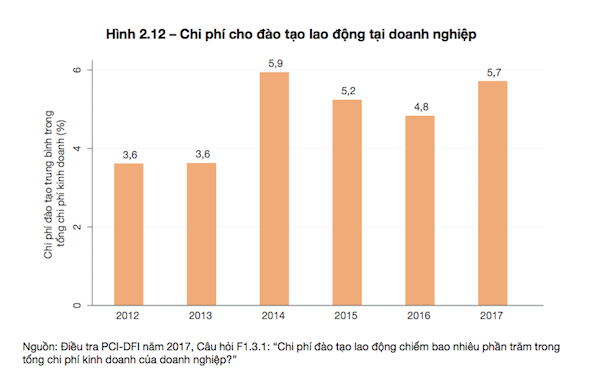 |
| Table of costs that businesses must spend to train new human resources after recruitment in the period 2012 - 2017. |
Accordingly, the cost of labor retraining of FDI enterprises has increased significantly since 2014. Specifically, the average cost for this activity accounted for only 3.6% of business costs in 2013, but then skyrocketed to 5.9% in 2014 and to 5.7% in 2017.
This increase in training costs may be due to the shift of enterprises towards producing higher value-added products, which require more specialized training for workers. However, other indicators of labor quality suggest that this change partly reflects foreign investors’ assessment of the poor skills of local workers.
Therefore, FDI enterprises recommend quality.Vietnam's labor resources need special attention from policy makers.

.jpg)
